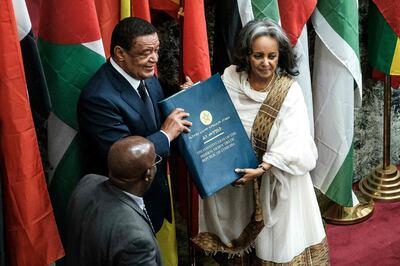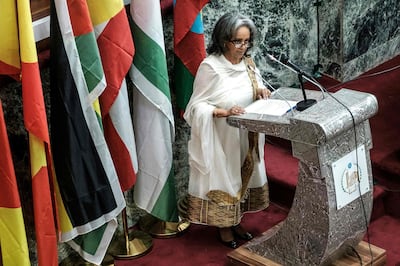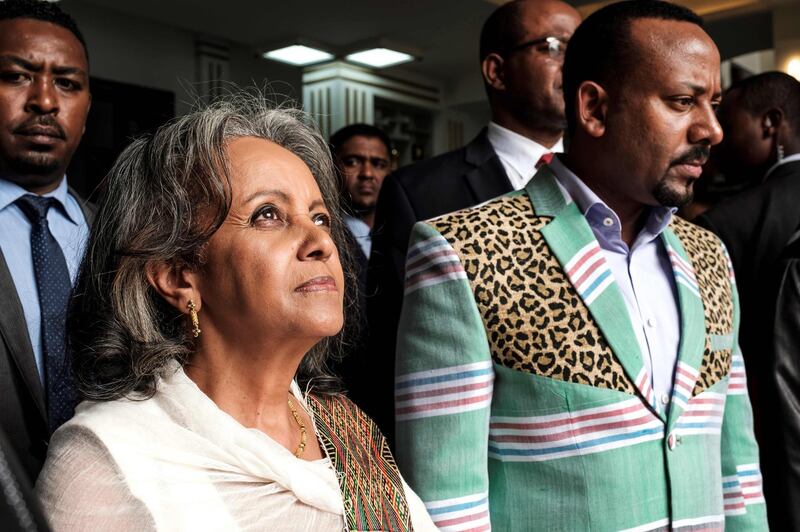Days after approving a gender-balanced cabinet, Ethiopia’s parliament on Thursday appointed Sahle-Work Zewde as the country’s president, making her Africa’s only female head of state.
A highly experienced career diplomat, Ms Sahle-Work is the first woman to hold the position. And although the role is mostly ceremonial, her appointment has great symbolic weight in a country beset by communal violence.
“If the current change in Ethiopia is headed equally by both men and women, it can sustain its momentum and realise a prosperous Ethiopia free of religious, ethnic and gender discrimination,” Ms Sahle-Work said on Thursday.
Her unanimous election is the latest in a tranche of radical reforms in Africa’s second most-populous country since dynamic new prime minister Abiy Ahmed came to power in April following nationwide protests.
As well as ending a state of emergency, Mr Abiy signed a peace deal with Eritrea and released thousands of political prisoners.

"This is another extremely significant marker put down by the prime minister," Ahmed Soliman, research fellow at Chatham House's Africa programme, told The National. "Broadly it is in line with the recent government shake-up and the cabinet changes, where half the posts are taken up by women."
Few countries, among them Canada and Rwanda, can boast the same.
______________
Read more:
[ Ethiopian Prime Minister Abiy Ahmed appoints new finance minister ]
[ Hopes for a peaceful Somalia could be dashed by careless leadership ]
[ DP World investment boosts Somaliland's push for sovereignty ]
______________
Ms Sahle-Work succeeds Mulatu Teshome, who decided to resign in 2017 but was convinced to stay on by Mr Abiy’s predecessor, Hailemariam Desalegn.
She has been Ethiopia’s ambassador to France, Djibouti, Senegal and IGAD, the Horn of Africa’s answer to the GCC. Most recently she served as the UN secretary general’s special representative to the African Union.
Her breadth of experience, Mr Soliman said, will allow her to push for gender equality in Ethiopian society and act as a unifying influence amid an uptick in ethnic violence over resources and contested boundaries.

Conflict has broken out this year in Tigray and the Somali region, but it is most troubling in the southern border areas of Gedeo and West Guji. According to the Geneva-based Internal Displacement Monitoring Centre, 1.4 million people were displaced in Ethiopia between January and June, a higher tally than in Syria. As ever, women and children are the biggest victims of ethnic violence.
“The priority for the government at the moment is to try to show a unified Ethiopia,” said Mr Soliman. “It can’t just be Mr Abiy who does that, there has to be a different face that is able to reach out to communities as an interlocutor and she is the perfect ambassador for that role.”





